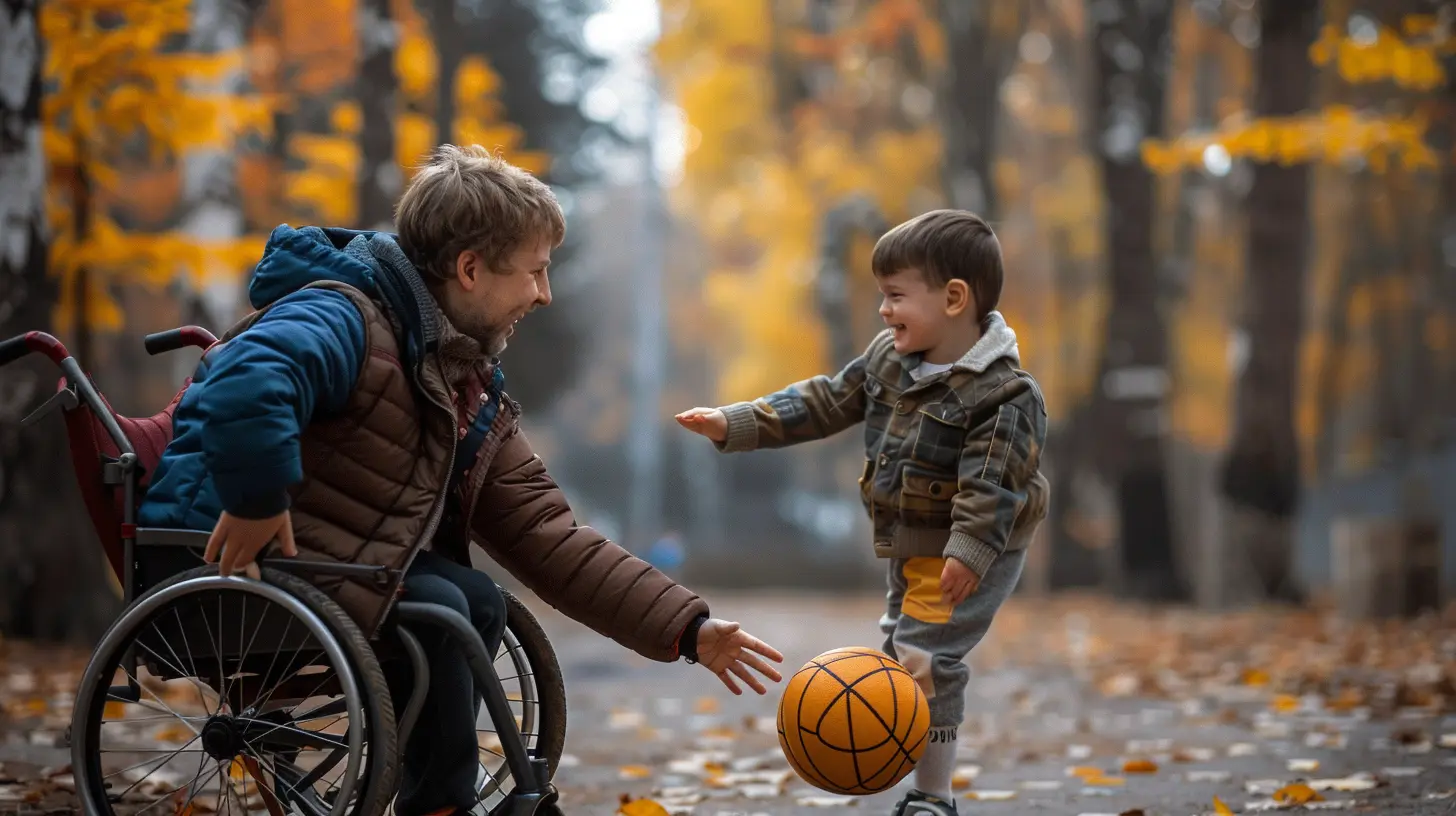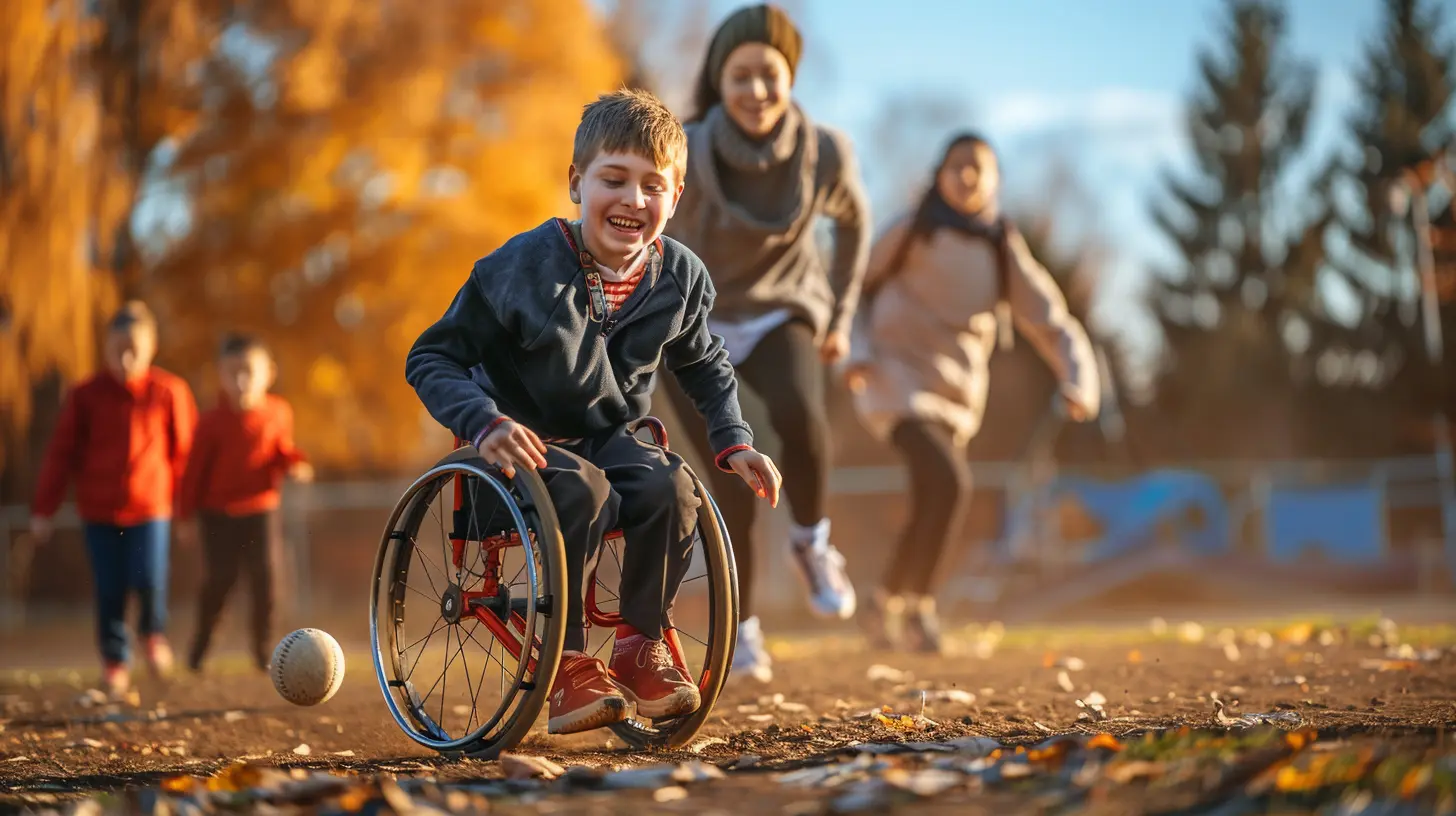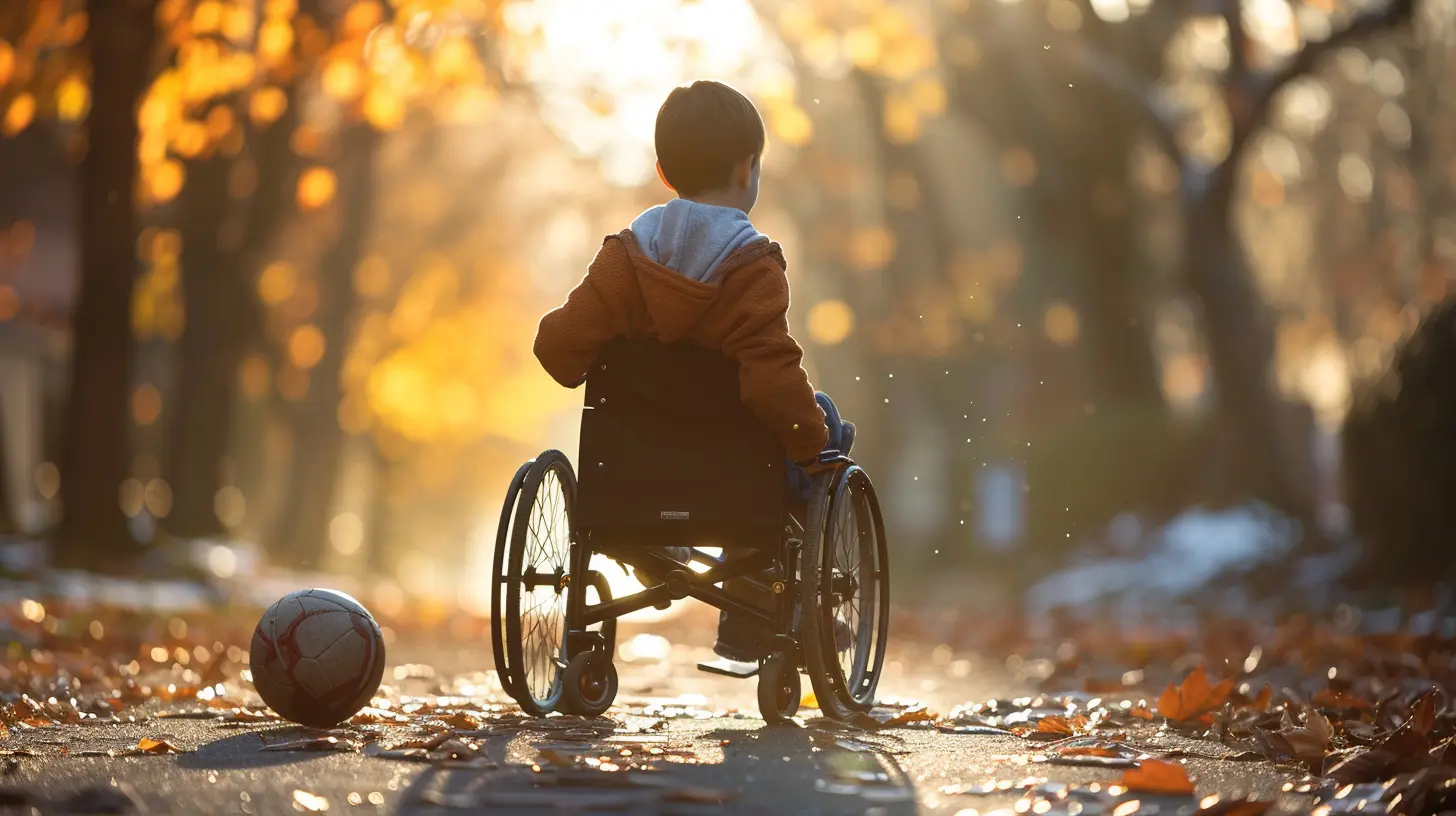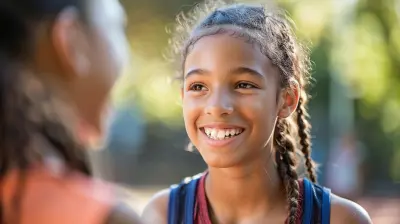Sports for Kids with Special Needs: Finding the Right Fit
10 October 2025
Let’s face it — finding the right activity for your child isn’t always a walk in the park. And when you’re parenting a child with special needs, the options can feel even narrower. But here’s the good news: sports for kids with special needs don’t just exist — they’re thriving, growing, and changing lives. Yep, we’re talking about way more than just kickball in the backyard.
Sports can offer kids with special needs the chance to move, have fun, build confidence, and connect with others. It’s like giving them a key — not just to better health, but also to social inclusion and emotional growth.
In this guide, we’ll help you navigate the world of inclusive sports, what benefits they offer, how to choose the right one, and tips to make it all work smoothly.
Why Sports Matter for Kids with Special Needs
Before we talk about the "how," let’s chat a little about the "why." You might be wondering, “Is sports really a good idea for my child?” Totally fair.Spoiler alert: The answer is almost always yes — but with the right support and fit.
Physical Benefits
Let’s start with the obvious. Physical activity helps build strength, coordination, flexibility, and balance. For kids with sensory, motor, or developmental challenges, sports can be a great way to work on gross and fine motor skills.Think better posture, improved endurance, and even better sleep at night. Seriously, who doesn’t want a child who’s actually tired at bedtime?
Emotional Boost
Kids feel good when they succeed at something. Scoring a goal or just finishing a lap gives them a sense of accomplishment. That little smile when they realize, “Hey, I can do this”? That’s priceless.Plus, sports help with emotional regulation. Moving the body can calm anxiety and release pent-up energy. So yes, sports can actually help reduce meltdowns. Win-win.
Social Connection
Ever seen a group of kids cheering each other on? That kind of camaraderie is gold. Through sports, kids learn teamwork, communication, and empathy. And for children who sometimes struggle in social settings, this can be a gentle — but powerful — way to engage.Confidence Builder
Let’s not forget: confidence is contagious. If a child succeeds in one area, it spills into other areas of life. They start taking more risks (the good kind), speaking up more, and standing a little taller.
Common Challenges — and How to Tackle Them
We won't sugarcoat it — joining a sports program can come with hurdles. But don’t worry, most of these can be managed with a little creativity, preparation, and patience.Lack of Inclusive Programs
Not every sports league is set up to support kids with special needs. Sad but true. But the good part? More and more inclusive programs are popping up around the country.Your best bet? Look for programs marketed as “adaptive” or “inclusive” sports. Local YMCAs, Special Olympics, or even some recreational leagues offer these options.
Sensory Sensitivities
Crowds, bright lights, loud whistles — these can be overwhelming. Some kids might find a big, noisy game environment too much.Solution? Start small. Try quieter environments, fewer players, or even one-on-one coaching. Noise-canceling headphones or sunglasses might also help.
Communication Barriers
For non-verbal kids or those with speech delays, understanding instructions or connecting with teammates might be tricky.Work with coaches who are trained in using visuals, gestures, and adaptive communication tools. Sometimes a simple thumbs-up works wonders.
Skill Gaps
Not every child is naturally athletic. And that’s perfectly okay.Try programs that focus on participation and effort rather than competition. Progress over perfection — every time.
How to Choose the Right Sport
Here’s the million-dollar question: Which sport is the right one? The answer? It depends on the child. Let’s break it down.Consider Your Child’s Interests
First off, what do they enjoy doing? Do they love water? Try swimming. Obsessed with bouncing? Maybe gymnastics or trampoline therapy. Into animals? Horseback riding (a.k.a. equine therapy) might be perfect.Ask your child, if they can express themselves. If not, observe — what excites them? What makes them smile?
Think About Their Strengths and Challenges
Does your child have strong upper-body strength but struggles with balance? Or maybe they’re more introverted and prefer solo activities?Match the sport to their physical and emotional needs. Some examples below might help:
- Swimming: Great for kids with ADHD, autism, or sensory disorders. It’s calm, low-impact, and therapeutic.
- Martial Arts: Encourages discipline and focus; helpful for kids with ADHD, anxiety, or autism.
- Track and Field: Ideal for kids who enjoy repetitive motion; great for those who like personal goals over team play.
- Dance or Movement Therapy: Fantastic for expression and coordination, especially with sensory or emotional regulation issues.
- Horseback Riding (Equine Therapy): Excellent for kids with physical disabilities or autism; helps with balance, coordination, and relationships.
Trial Runs are Gold
If there’s a program nearby that offers trial classes — take advantage! Dipping a toe in is way less intimidating than diving in.
Top Inclusive Sports Programs to Check Out
Sometimes, the hardest part is knowing where to look. Here are some inclusive sports programs that cater to different needs — physical, developmental, and everything in between.Special Olympics
Probably one of the best-known organizations. They offer year-round sports training and competition for children and adults with intellectual disabilities. From soccer to skiing, options are endless.Miracle League
If your child is interested in baseball but traditional leagues feel out of reach, check out the Miracle League. Their fields are designed to accommodate wheelchairs and mobility aids.TOPSoccer (The Outreach Program for Soccer)
Perfect for soccer lovers! Aimed at children with physical or intellectual disabilities, this program pairs them with trained “buddies” for support.Challenger Division of Little League
For kids who want to swing a bat or run bases, this division creates a safe, inclusive space.YMCA Adaptive Programs
Many local Y’s offer adaptive sports like swimming, dance, and basketball specifically tailored to kids with special needs.Tips for Making Sports a Success for Your Child
So you’ve picked a sport and found a great program. Now what? Here are some handy tips to keep things running smoothly:1. Talk to the Coach
Communication is key. Let the coach know about your child's needs, triggers, and strengths. Don’t be shy. You’re your child’s best advocate.2. Prep Your Child
Explain what to expect. Use pictures, social stories, or videos to show them what the activity will be like. Preparation lowers anxiety.3. Set Realistic Expectations
Not every day will be a slam dunk. Some days might be tough. Stick with it, celebrate the small wins, and offer lots of praise.4. Stay Involved
Be there when possible, offer encouragement, and volunteer if you can. Your presence can be comforting and motivating for your child.5. Know When to Pivot
If something just isn’t working — it’s okay to switch gears. A sport that’s “too much” now doesn’t mean it’ll always be off the table.Celebrating Progress — Not Just Performance
One of the most beautiful things about sports for kids with special needs? The meaning of success shifts. It’s not always about scoring the most goals or getting the fastest time — sometimes, it’s about managing to stay for the whole session without a meltdown. Or making eye contact with a teammate. Or trying a new skill they were once too scared to attempt.Those moments? They’re huge.
As a parent, you get to step into the role of coach, cheerleader, and proud fan all at once. And trust me — even if there are stumbles along the way, the growth you’ll witness is worth every second.
Final Thoughts
Sports can be a total game-changer (pun intended) for children with special needs. The benefits go far beyond the physical — they reach deep into emotional, social, and personal development.Sure, finding the right fit takes time. It might take trial and error. But once you see your child light up on the field, in the pool, or on the court — you’ll know it’s all worth it.
So take that first leap. Whether it’s a swim lesson, a martial arts class, or a dance workshop, your child deserves a chance to discover just how capable and amazing they truly are.
And hey, who knows? You might just find yourself cheering louder than anyone else in the stands.
all images in this post were generated using AI tools
Category:
Kids And SportsAuthor:

Steven McLain
Discussion
rate this article
1 comments
Benjamin Curry
Great insights! Helping parents find appropriate sports for special needs kids is essential for their development and joy.
October 17, 2025 at 3:45 AM

Steven McLain
Thank you! I'm glad you found the insights helpful. Supporting special needs kids in finding the right sport is truly vital for their growth and happiness.


